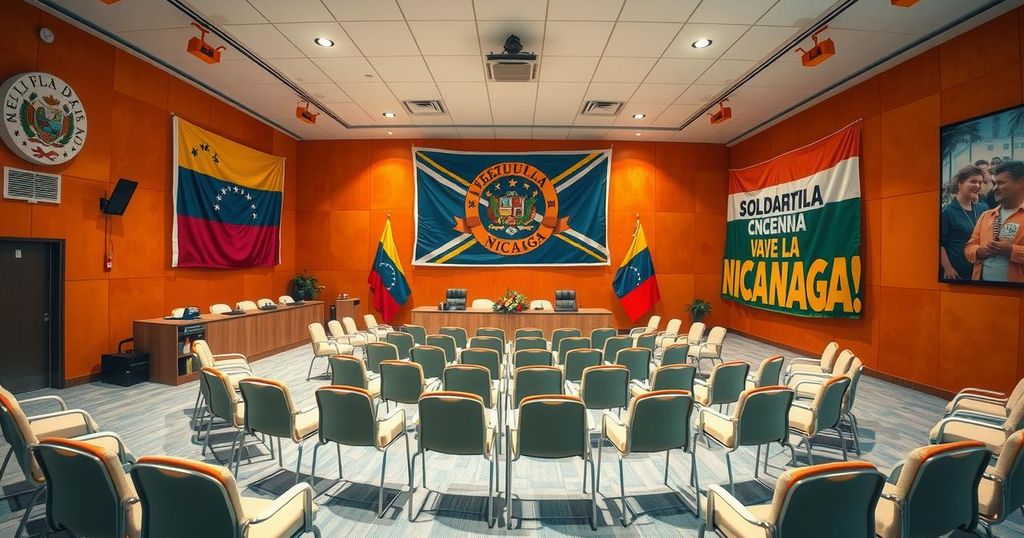Women Leaders of Venezuela and Nicaragua Discuss Resistance and Progress in NYC

Women leaders from Venezuela and Nicaragua spoke at a meeting in NYC on March 20, discussing their nations’ resistance to U.S. imperialism and women’s progress in achieving equality. They condemned U.S. sanctions and recent deportations of Venezuelan migrants. Notably, Nicaragua is ranked highly for gender equality, attributed to the Sandinista government’s policies promoting women’s education and representation.
On March 20, women leaders from Venezuela and Nicaragua engaged in a significant dialogue at the Workers World Party office in New York City, a gathering arranged during their visit for meetings at the United Nations. This hybrid meeting, which allowed for both in-person and virtual attendance via Zoom, focused on the resilience of both nations against U.S. imperialism and highlighted advancements made by women in their societies.
Asia Villegas, a deputy in the Venezuelan National Assembly, initiated the discussion by condemning the aggressive policies of the Trump administration, referring to the imposition of unilateral sanctions on Venezuela since the 2000s that have reportedly cost its citizens $650 billion. Villegas emphasized that the impact of such economic measures extends globally, affecting 30 countries and nearly 28% of the world’s population, with women bearing the brunt of these hardships.
Further, Villegas condemned the recent unlawful seizure and deportation of Venezuelan migrants, asserting that U.S. economic warfare instigated their migration, despite prior assurances from the government regarding their status. She affirmed the cultural diversity of Venezuela, home to various ethnic groups, and expressed solidarity with women and girls impacted by imperialism, particularly in Palestine and Cuba, emphasizing that “we are not criminals, and we are not enemies of the people of the United States.”
Hazel Reyes represented Nicaragua and highlighted her country’s achievements in gender equality, noting a ranking by the World Economic Forum placing Nicaragua first in Latin America and sixth globally. Reyes attributed this success to initiatives by the Sandinista government and remarked on the importance of women’s representation in education and governance, with women constituting 52% of higher education enrollments.
During the question and answer session, Reyes detailed advancements for Indigenous communities and Afro-descendant populations in Nicaragua, with infrastructure improvements enhancing access to essential services. The meeting was co-chaired by Saher Al-Khabash and Mairead Skehan Gillis, who also provided translation services. Conversations also included discussions from organizations like the Bronx Anti-War Coalition and MAS.
The meeting emphasized the resilience and achievements of women in Venezuela and Nicaragua despite U.S. intervention and imperialism. It underscored the substantial progress made in gender equality and the importance of communal support against economic sanctions. The representatives articulated solidarity with oppressed groups globally, highlighting the need for awareness and advocacy for women’s rights in politically volatile regions.
Original Source: www.workers.org







